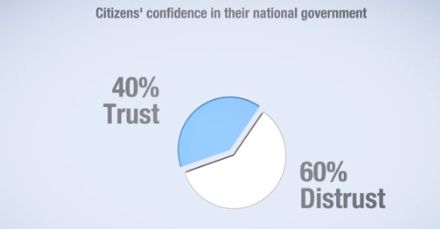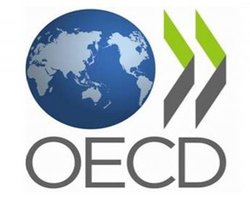The global economic crisis human cost goes far beyond loss of jobs and wages, according to “How’s life? 2013 Measuring well-being”, a new report by the OECD (Organization for Economic Co-operation and Development).
The global economic crisis human cost affects people’s satisfaction with their lives and even how trustworthy they find their governments.
According to the report, citizen’s perceptions of their well-being deteriorated significantly during and after the crisis, especially in countries most affected.
From 2007 to 2012, average life satisfaction reported by citizens fell:
- 20% in Greece.
- 12% in Spain.
- 10% in Italy.
Surprisingly, in Mexico, Sweden, Russia, Israel and Germany average life satisfaction improved moderately.
For millions of people worldwide, life is a lot tougher than it was a few years ago.
Today, in OECD countries there are 15 million more people without jobs compared to 2007. Relative poverty has increased and continues to do so, especially among young adults.
Boosting economic growth is vital, but if our societies are to emerge stronger from the Great Recession “investing in people’s well-being must be at the heart of government action,” says the OECD.
Global economic crisis human cost affected how much we trust our governments

The authors of the report say that in Greece, Spain and Portugal, the worst hit countries in the Eurozone, people trust their governments and institutions much less now than before. Over the last five years there has been a 10 percentage point fall in the number of people saying their trust their national governments.
OECD citizens now trust their governments less than at any time since 2006.
OECD Secretary-General Angel Gurría, said “This report is a wake-up call to us all. It is a reminder that the central purpose of economic policies is to improve people’s lives. We need to rethink how to place people’s needs at the heart of policy-making”.
The study provides a unique glimpse into the global economic crisis human cost. It measures quality of life and material living, what the authors call the “well-being” of citizens in OECD nations. It confirms that the full consequences of the Great Recession takes time to play out in terms of the person’s health or loss of skills.
Narrowing gender gap
The study also reports on the narrowing gender gap, which has not disappeared and still favors males. Women are still earning less than men. Girls are beating boys academically at schools, although females continue to be under-represented in fields that lead to better job prospects.
The authors of the report found that from the Great Recession new forms of solidarity have arisen; more people are today stepping forward to help those in need. “Families have been a source of support, both financial and in-kind, and have provided an increasingly important safety net.”
The ”How’s Life?” report is part of the Better Life Initiative, launched by the OECD in 2011 to measure the well-being and progress of its citizens beyond the simple economic metrics, such as GDP.
Measuring the full impact of the Great Recession will take many years
It will be many years before we will be able to measure the full impact of the Great Recession on people’s well-being.
The health burden – poverty, a high burden of debt, and prolonged unemployment are all risk factors for deteriorating health in the future.
Lost skills – the steep rise in the number of long-term unemployed people means that many are not developing the skills needed to improve their job prospects.
Hope – the report found that despite the crisis, significant progress has been made in OECD countries in many areas over the last two decades.
The OECD says it is extending the measurement of well-being to different aspects of human life and to different groups in society. The study found that in the workplace, support from colleagues as well as good management practices are “powerful drivers of well-being.”
The report measures the following factors that contribute to a human being’s well-being:
- Civic engagement
- Education and skills
- Environment
- Health
- Housing
- Income
- Jobs
- Objective and subjective well-being
- Security
- Social connections
- Work-life balance
What is the difference between the “Great Depression” and the “Great Recession”? – the Great Depression occurred during the 1930s and lasted about a decade (longer in some countries), while the Great Recession started in December 2007 and then went into a nosedive in September 2008. The Great Depression was the longest, most widespread, most devastating depression of the 20th century. A depression is a more severe version of a recession.

